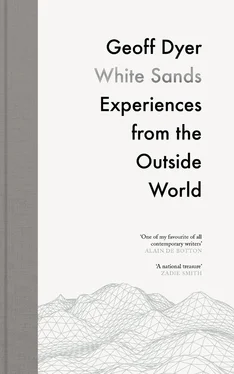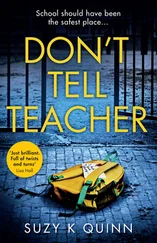There are other scenarios too. You can run out of time long before you run out of ideas or sanity. Some unwritten books are the result of unfinished lives, of premature deaths. Albert Camus had the manuscript of the novel he was working on, The First Man , in the car with him when he was killed at the age of forty-six. Camus had popularised the mythic figure of Sisyphus, whom, he said, we should imagine happy as he rolled his rock up the hill each day. But for anyone engaged in some kind of personal labour, Rodia is a far better model, for two related reasons. His labours were, like Camus’s, the opposite of futile — and they rendered the question of happiness futile, irrelevant. (Is the word ‘happy’ ever part of the vocabulary of the cussed?) Each day, instead of starting from scratch, from where he had begun the previous morning, he made progress. The protagonist of Richard Flanagan’s novel The Narrow Road to the Deep North thinks of Sisyphus as an example of ‘the Greeks’ idea of punishment which was to constantly fail at what you most desire.’ Two of these three terms (‘failure’ and ‘desire’) play no part in Rodia’s work — but the task he had set himself was nothing if not punishing. The punishment was all but indistinguishable from the satisfaction and success of his endeavours. With every passing day, either the towers grew or the materials for their continued growth increased. Setbacks, false turns and dead-ends became the precondition for keeping on, for making something. Mingus recalls that Rodia was ‘always changing his ideas while he worked and tearing down what he wasn’t satisfied with and starting over again, so pinnacles tall as a two-storey building would rise up and disappear and rise again.’ But every day some small improvement was made, because mistakes, too, are essential tools.
In a famous passage about forgiveness in The Human Condition , Hannah Arendt writes: ‘Only through this constant mutual release from what they do can men remain agents, only by the constant willingness to change their minds and start again can they be trusted with so great a power as that to begin something new.’ Was there something deeply unforgiving about Rodia — unforgiving, that is, towards himself — something punishing (that word again) about his labours? He would see the error of his ways, change his mind, start over and continue with the same old thing. Always the same thing, the one thing.
Progress was made — but so incrementally as to have been imperceptible — as each day he climbed what he had built in order to build the as yet unmade. Every day (the contrast with Sisyphus is crucial) it took a little more effort to ascend to the point where he could start work. So his purpose was perhaps similar to that of people who climb mountains. Maybe the only answer to the question of why Rodia built his monument is a negative version of Hillary’s famous response about why he had climbed Everest: because it wasn’t there.
The ancient Egyptians spent much of their lives obsessing about the afterlife. They were always embalming or being embalmed, seeking to preserve themselves, but the afterlife, it turns out, is not the one for which they were so scrupulously and painstakingly prepared — the one they imagined beginning soon after their physical death. The real afterlife would occur from the mid-nineteenth century onwards, when they were excavated from their tombs of sand. Or, better, their wombs of sand, for they were not buried by the sand so much as formed in it, like models in a mould. From the moment of their discovery they were effectively reborn in monumental, idealised form, surrounded by tourists, photographed and worshipped like gods in some perpetual present .
That’s how it seems at first. But lurking beneath this is the suspicion — not unjustified considering their obsession with what would become of them after death — that the ancient Egyptians devoted themselves to leaving tantalising clues as to the nature of their civilization. To do this they must have had more than an inkling — extraordinary for a people who had not read Gibbon’s Decline and Fall of the Roman Empire, for whom history in the modern sense still lay in the distant future — that this civilization of theirs, so replete with images of permanence, was not going to last. With astonishing accuracy, they calculated what would be likely to survive and how, from that, we would be able to extrapolate backwards to their own time. (Ozymandias, in this light, was smarter than Shelley, took the longer view and had the last laugh. The sculptor designed his monument with the lone and level sands in mind, relied on them to play their part.) The discovery of the Rosetta Stone was anything but accidental: its purpose was to be preserved, found and deciphered. This also helps to explain why, despite their immense age, all of the sculptures, headdresses, art and carvings look futuristic. Just as the crew of a space ship on a journey to a planet in the distant reaches of the solar system are kept in a state of suspended animation, the ancient Egyptians knew they would have to out-wait everything the sands could throw at them: that’s why they’re sitting. The smiles on the faces of the sculpted pharaohs are the product of this long wager having paid off. They seem to look, simultaneously, as if they are waiting to be discovered and as if — to their eternal delight — they have just been discovered .
Beginning
Now, right at the end, I need to go back to the beginning of our long-anticipated Californian life. We flew from London, were upgraded to business class (I’d finally got the seat I deserved, as the Norwegian flight attendant had promised) and moved into a little bungalow in Venice in January 2014. The timing was perfect: while England was sinking beneath the waves, or the rivers at any rate, the weather here, even by the high standards of Los Angeles, was exceptionally wonderful. We quickly established a nice routine: at eight o’clock we’d go for coffee — an eight-ounce cappuccino and a twice-baked hazelnut croissant at Intelligentsia. Jessica would go to her office in nearby Culver City, and I would return and try to work. Every other afternoon, I’d cycle down to the tennis courts by the beach, play for an hour and ride home again as the sun was setting over the Pacific.
Then, only a few weeks into our new life, I bent down to push some garbage into the already stuffed bin. When I stood up half the world had disappeared. It had disappeared but it was still there, sort of. The kitchen wall was visible but it didn’t seem quite right: familiar but changed, as happens in dreams. Ah, now, here was something I recognized: a strip of brown wood against the pale yellow wall. It was the frame of the mirror — I was looking into a mirror but, like a vampire, I couldn’t see my reflection. The mirror had become a window, but all that could be seen in this window was the wall on the other side of the room, behind me or behind where I used to be. So where had I gone?
‘Something’s happened to my eye,’ I called out to Jessica. She was in the bedroom, but she too had semi-disappeared. I could see half of her body, but her face had gone. I thumped myself slightly on the side of the head as if that might knock everything back into place, dislodge the opaque filter that had come between me — though even that, the idea of there being a me, had become less certain than usual — and the world. I was getting confused as I tried to make sense of this insubstantial world in which things were and were not.
‘What’s happening?’ she said.
‘Well, whatever it is, it’s well trippy!’ I said. ‘Where is the. .? Why is the wall a door?’
I was covering up one eye and then the other, trying to eliminate variables, as one does with an electrical fault (bulb, fuse, socket. .), trying to ascertain exactly where the problem lay, which part of my sight had gone.
Читать дальше












